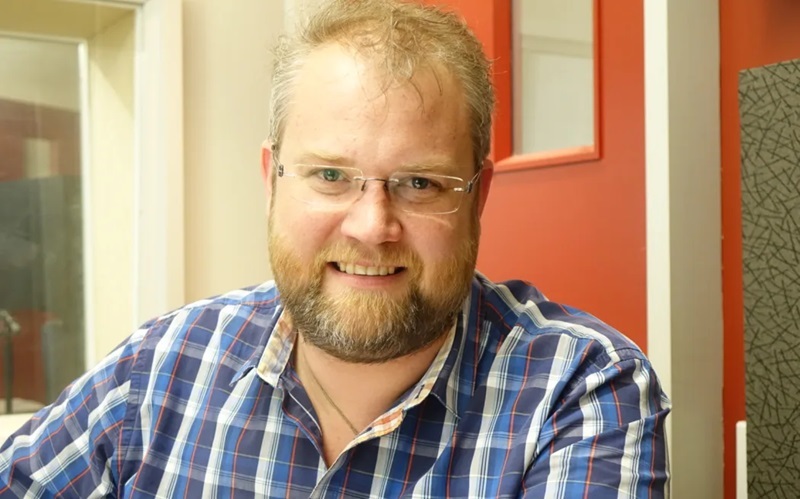ACC u-turn reinstates one-on-one case managers for thousands of clients
RNZ
03 September 2024, 9:51 PM
 Photo: RNZ/Vinay Ranchhod
Photo: RNZ/Vinay RanchhodACC has reinstated personal case managers for nearly 12,500 clients, u-turning on part of a $74 million restructure that had removed them.
The reintroduction of one-to-one case management for new clients receiving weekly compensation has occurred after "gaps" emerged in a case management model introduced four years ago, ACC said.
A lawyer specialising in ACC law said the reversal was not a surprise, because the agency had been warned the new system would fail.
The roll-out of what the agency called its 'Next Generation Case Management' system was completed in 2020.
It was touted as a way to increase productivity, save costs and improve workloads, but has been plagued with problems.
A 2022 internal review of the system found running costs had almost doubled and the benefits to clients were still "unclear".
Despite the "teething problems", the new system was still worth the investment, ACC chief executive Megan Main said at the time.
Another internal review carried out in May 2023, obtained by RNZ under the Official Information Act, found it was still not working as intended due to "gaps" between "the blueprint and the delivered product".
With little improvement to case backlogs by March this year, and deteriorating rehabilitation rates, the agency reverted to one-to-one case management for new 'low-complexity' clients receiving weekly compensation on its Assisted Recovery scheme.
The category typically covers people with temporary injuries, who need some support to rehabilitate - the agency's website provides the example of a teacher with a dislocated shoulder.
Clients with more serious or complex injuries, handled by the 'Supported Recovery' and 'Partnered Recovery' teams, have continued to have personal case managers.
As of the end of August, 200 staff were working one-to-one with 12,499 new Assisted Recovery clients.
Lawyer Warren Forster, who founded conciliation service ACC Advocacy, said he was unsurprised at the decision to reinstate one-to-one management in thousands of cases.
"It went from people managing cases, to queues of things, and it failed. We told them in 2017 that they were going to fail, and they have."

Specialist lawyer Warren Forster says the failure of the restructure was unsurprising. Photo: RNZ / Ian Telfer
One of the biggest changes under the new model was the switch to Assisted Recovery, where claims from people receiving weekly compensation were now managed by teams of people rather than a single case manager.
Administrative tasks normally handled by case managers were passed to dedicated administrative staff in order to free up case management capacity, but it did not work as hoped.
"At times the recovery teams' efforts to create a task is similar to them completing the task themselves rather than passing it on," the 2023 review said.
Claimants faced payment delays due to ACC "underestimating the complexity" of the rules. Staff - who were supposed to have more discretion rather than "hard and fast rules" - became bogged down by processes and guidelines that had to be followed.
"The process to carry out a Welcome conversation (excluding having the conversation) is 49 steps," the review noted.
Staff hired to work in the new teams were supposed to have been trained within six to eight weeks, but were taking more than a year to become fully competent, and many found they were not doing the job they were hired for, the review said.
"They have instead been adversely impacted by backlogs, a disconnect from client outcomes and workload issues created by high attrition."
The number of cases handled by staff ended up being nearly double than planned, because of their complexity.
The agency's quarterly report in March this year said the case management model was "struggling to cope with the volume of management claims" as volumes returned to pre-Covid-19 levels.
The need for a new case management model was first identified in 2014, with the business case for the current system put forward in 2017. The $74m restructure was part of a $700m overhaul of ACC's systems that was meant to produce $438m in cost savings by 2030.
The 2022 review found there was a "high degree of uncertainty" over whether those forecasted benefits would be achieved.
Forster said the new model had failed to improve rehabilitation rates.
"ACC staff are not getting people back to work. They're not getting people back to independence, and that's because of the way that they've been managing claims," he said.
"When rehabilitation fails, that doesn't just increase the cost of levies - it increases the cost to society, to people, to communities.
"We've lost 10 years going down a rabbit hole of Next Generation Case Management."
ACC responds
ACC declined to be interviewed. In a statement, it said a "large number" of Assisted Recovery clients continue to be managed through a teams-based approach.
An internal 'Rehabilitation Improvement Group' formed in December 2022 identified that the Assisted Recovery category was "constrained" by the task-based teams-based approach. It hampered clients' recovery and their ACC experience, ACC deputy chief executive of service delivery Amanda Malu said.
ACC chief executive Megan Main said Assisted Recovery was an area that "continued to evolve" but Covid-19 and a huge increase in demand had not been anticipated.

ACC chief executive Megan Main Photo: RNZ / Samuel Rillstone
"In 2023/24, there were 4000 more new weekly compensation claims than the previous financial year, reflecting a 3.9 percent growth rate. In line with international trends, it's also taking longer and costing more for clients to recover from injury," Main said in the statement.
"ACC is committed to improving rehabilitation outcomes and the experience of clients and providers. Sometimes this involves honest conversations about areas where we can do better.
"We'll continue to critically review our systems and programmes to ensure we deliver the best outcomes for New Zealanders," she said.
NEWS
MUSIC






